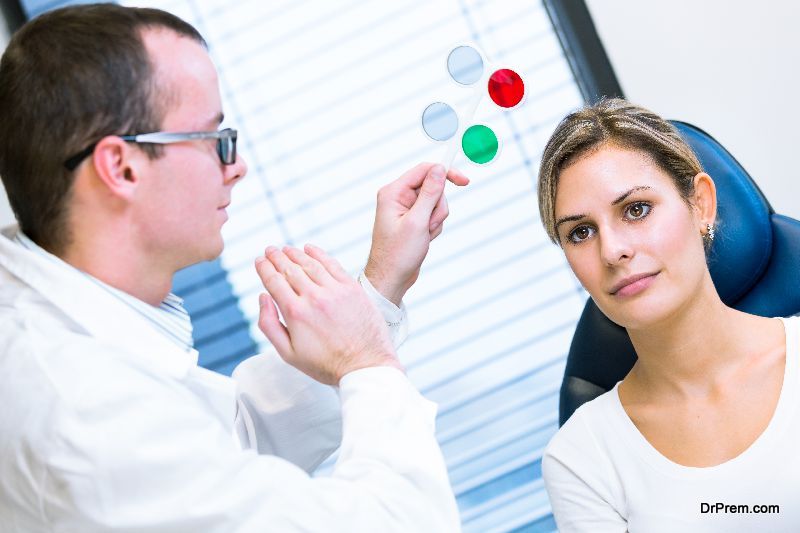Even if you don’t currently have problems seeing, you need to make proper eye care a priority. If you don’t take care of your eyes, there’s a higher risk of your eyesight worsening over the years. So to help prevent your eyesight from worsening or help prevent problems in the future, follow these tips.
Wear Sunglasses Regularly

Sunglasses are more than a cool accessory. They protect your eyes from the sun’s harmful UV rays. You should wear sunglasses when you go out during the day, but not just any sunglasses. Make sure the pair you purchase blocks out 99 to 100 percent of UV-A and UV-B radiation.
Wear Safety Glasses When Necessary
Eye injuries are really common, so it’s important to wear safety glasses whenever you’re in a potentially hazardous environment. If you work in an industrial atmosphere, a laboratory, or on a construction site, you should always have on your protective eyewear. If you wear prescription glasses, either wear contacts while you work so you can wear your work-provided safety glasses or purchase prescription safety glasses.
Furthermore, you should wear protective glasses any time you’re completing a home renovation project, using power tools, or playing sports.
Limit Screen Time

If you spend a lot of time staring at your computer screen, watching TV on your favorite mobile device, or playing video games, it can harm your eyes. Try to limit your daily screen time to give your eyes a rest. When you have to be at your computer, follow the 20-20 rule. Every 20 minutes look away from the monitor for at least 20 seconds. This helps reduce the strain on your eyes.
Also, consider purchasing glasses with lenses designed to protect your eyes while you’re working at the computer. Specifically designed computer glasses help prevent eye strain, blurred vision, and computer-induced headaches.
Get Routine Eye Exams
Even if you don’t seem to be suffering from vision problems, you should have a comprehensive dilated eye exam annually to maintain good eye health. Many common eye diseases like age-related macular degeneration and glaucoma, don’t have warning signs. By having a comprehensive eye exam regularly, your eye doctor may be able to detect early warning signs.
When undergoing a comprehensive dilated eye exam, the eye specialist will dilate your pupils. The exam is then completed in a dark room because your eyes will be extra sensitive to light. Dilating the pupils allows your doctor to see through to the back of your eyes, which is why it’s the only way to detect eye diseases early.
Eat Healthy

Eating healthy foods can help improve your eye health. Nutrients on the list include lutein, zinc, omega-3 fatty acids, Vitamin C and Vitamin E. Including these in your diet helps prevent age-related eye problems such as cataracts and macular degeneration. Some foods you should add to your diet include:
- Carrots
- Green leafy vegetables such as kale, spinach, and collards
- Tuna and salmon
- Protein-filled foods such as nuts, eggs, and beans
- Oranges and other citrus fruits
Maintain a Healthy Weight
When you’re overweight, you’re more prone to developing diabetes, which often has major effects on your eyes. Not only can diabetes lead to vision loss, it can also lead to glaucoma or diabetic eye disease.
Stop Smoking

Smokers are more likely to get cataracts or have macular degeneration. So if you smoke stop, as soon as possible. If you don’t smoke, don’t start.
If you want to be able to see properly well into your golden years, you need to take care of your eyes. In addition to following these tips, make sure you get enough rest each day — your eyes need regular breaks to function properly.
Article Submitted By Community Writer




